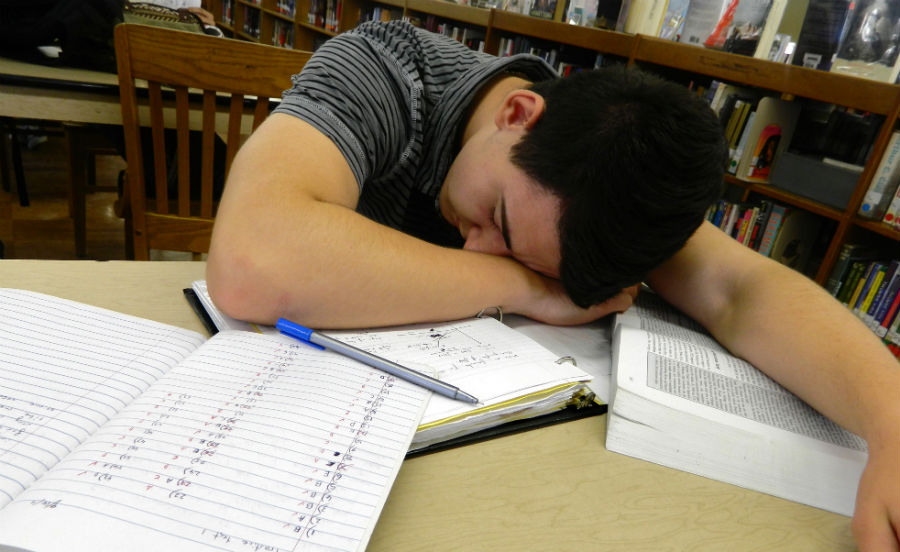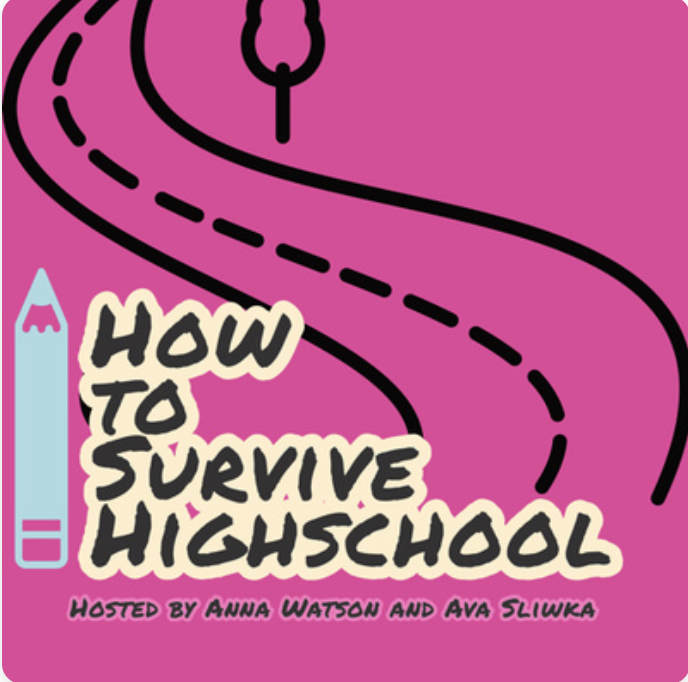Sleep is a crucial factor of everybody’s lives. However, even if sleep is a vital part of our lives, it can be difficult to get your daily eight hours. Whether socializing, watching television, doing homework or browsing the internet, there are many activities that get in the way of sleep. When your lack of sleep becomes critical you can expect a drop in energy, bad performance in school, and can even result in health problems. The question is… why can’t I get my full eight hours?
Rest assured you are not the only one that has trouble sleeping. You can ask around to hear the sleep troubles of others. Trevor Brown (2016) told us that he usually goes to bed around eleven and gets up at five. That is just six hours of rest. When asked about any effects he may have noticed he replied, “Well, once I got used to staying up late and waking up early I couldn’t notice much of a difference. However, initially I did start the day out really exhausted.” Even adults can have problems with sleeping. Mr. Krause said that when you become an adult you sleep even less. You have to balance work and personal life and anything can provide grief that can keep you up at night. He also revealed that most teachers can tell if there is something wrong with a student, whether sleep oriented or otherwise. He also said, “Of course, when students don’t sleep well, they usually have trouble paying attention in class. So their grades usually suffer a bit too.” Now that we know that all people, young and old, can have problems with sleeping and how it can affect your academic life the subject of getting some rest takes a more serious meaning.
To further understand what is needed to obtain sleep you can look at it as a sort of mathematical formula. Sleep = Relaxation + Energy However, this formula is a best case scenario, since human beings have different personalities and are unique sleep can work differently for everyone. For example, say you went to bed last night at midnight and woke up at five forty five. (A situation I constantly find myself in) You get to school and are in your Period B class when you are overcome with exhaustion and can barely keep your eyes open. However, when you were at your Period A class, which happens to be your favorite class you are wide awake and alert. You may ask, “Why didn’t I feel tired in my last class?” Since that class was your favorite and you probably wouldn’t want to miss any part of it, your brain might trick itself to think that you are at full energy so you can partake in the class. The human brain is a complex machine that requires energy from sleep. The remarkable thing about it is that it can convince itself that it doesn’t. As you begin to learn more about the mechanics of sleep you start to realize how much your brain convincing itself in different ways really affects your life.
Outside of just staying up late, there are several ways to suffer from a lack of sleep. On the lighter side of the spectrum, you can experience jetlag, nightmares, or an adrenaline rush. However, there are far worse things that can cause a lack of sleep. You may suffer from sleep apnea, which is when your lungs gasp for air in the night causing you to wake up briefly. The activity is not remembered and causes a lack of energy. You may also experience a more intense form of nightmare, called a night terror. When experiencing one you may start to thrash about and yet, still have no memory of anything. Luckily, night terrors are usually experienced in only younger children. Another common, yet, minor sleep deprivation cause is a phase delay in teenagers. Teenagers can experience two hours of exhaustion after waking up before they actually have energy. Although all of these are possibilities on why you don’t feel energized after sleeping, the more critical reasons are fairly rare.
There are several techniques and tips on how to get to sleep. It is suggested that one does not exercise before bed so you do not have any adrenaline left in you. You should also avoid excessive napping before you sleep, your body won’t feel the need for sleep if you already have plenty of naps. Finally, avoid anything caffeinated before you go to bed. All of these are pretty common sense, but do make a difference in your sleep.
In conclusion, sleep is a difficult aspect of human life to control, simply because there are so many factors and variables to it. While adjusting your lifestyle to incorporate longer periods of sleep may initially seem difficult, in the long run, the extra sleep will really pay off.













